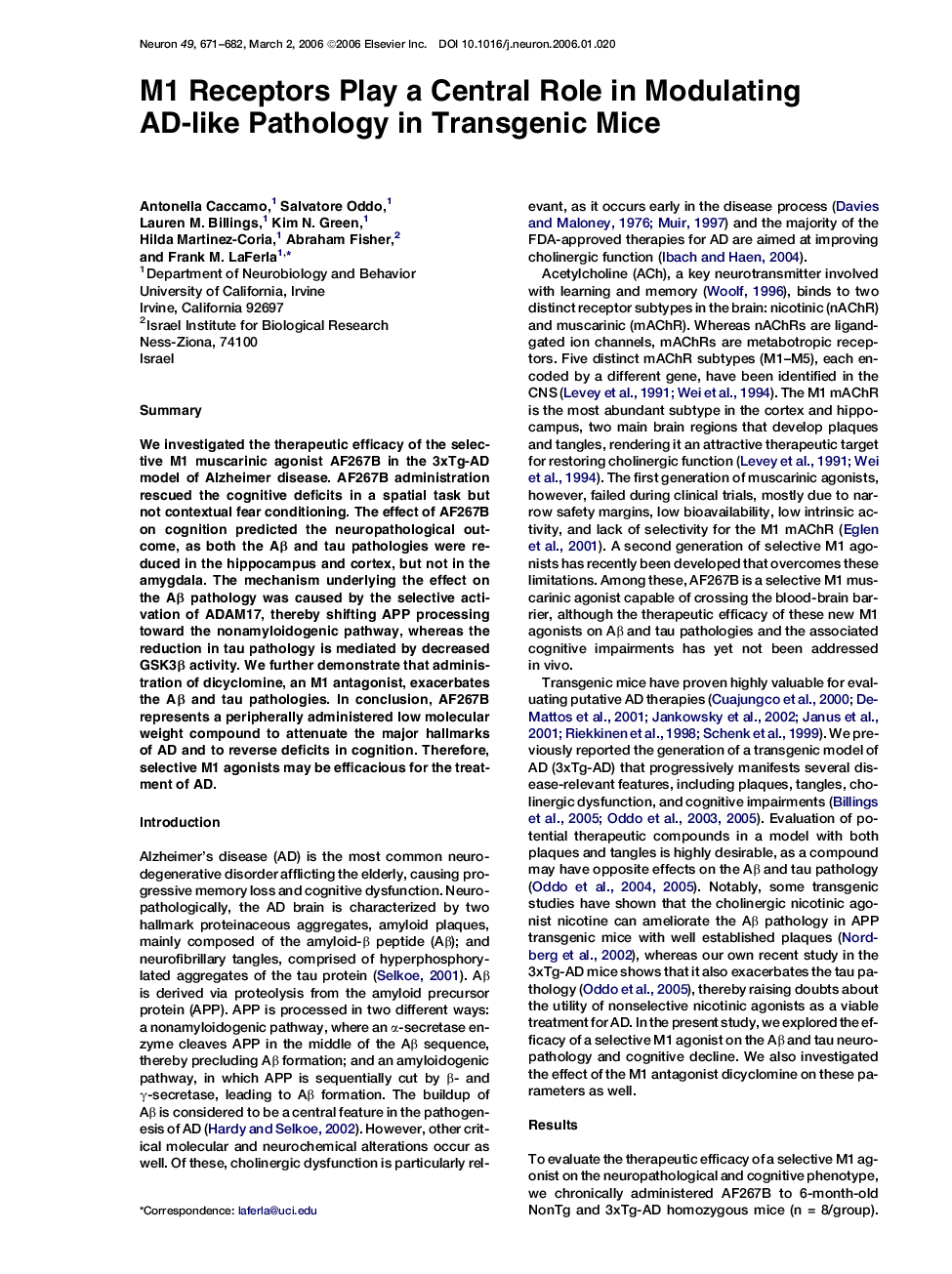| Article ID | Journal | Published Year | Pages | File Type |
|---|---|---|---|---|
| 4323405 | Neuron | 2006 | 12 Pages |
SummaryWe investigated the therapeutic efficacy of the selective M1 muscarinic agonist AF267B in the 3xTg-AD model of Alzheimer disease. AF267B administration rescued the cognitive deficits in a spatial task but not contextual fear conditioning. The effect of AF267B on cognition predicted the neuropathological outcome, as both the Aβ and tau pathologies were reduced in the hippocampus and cortex, but not in the amygdala. The mechanism underlying the effect on the Aβ pathology was caused by the selective activation of ADAM17, thereby shifting APP processing toward the nonamyloidogenic pathway, whereas the reduction in tau pathology is mediated by decreased GSK3β activity. We further demonstrate that administration of dicyclomine, an M1 antagonist, exacerbates the Aβ and tau pathologies. In conclusion, AF267B represents a peripherally administered low molecular weight compound to attenuate the major hallmarks of AD and to reverse deficits in cognition. Therefore, selective M1 agonists may be efficacious for the treatment of AD.
